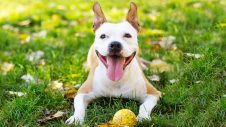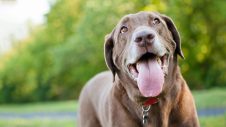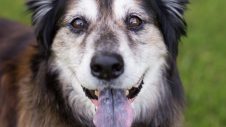What is a senior dog?
If your dog is over the age of seven, then they are considered a senior dog. On average, dogs age seven times faster than humans, meaning by the time your canine companion is nine years old, their organs, joints, and metabolism are comparative to a 63-year-old human. That’s almost retirement age!
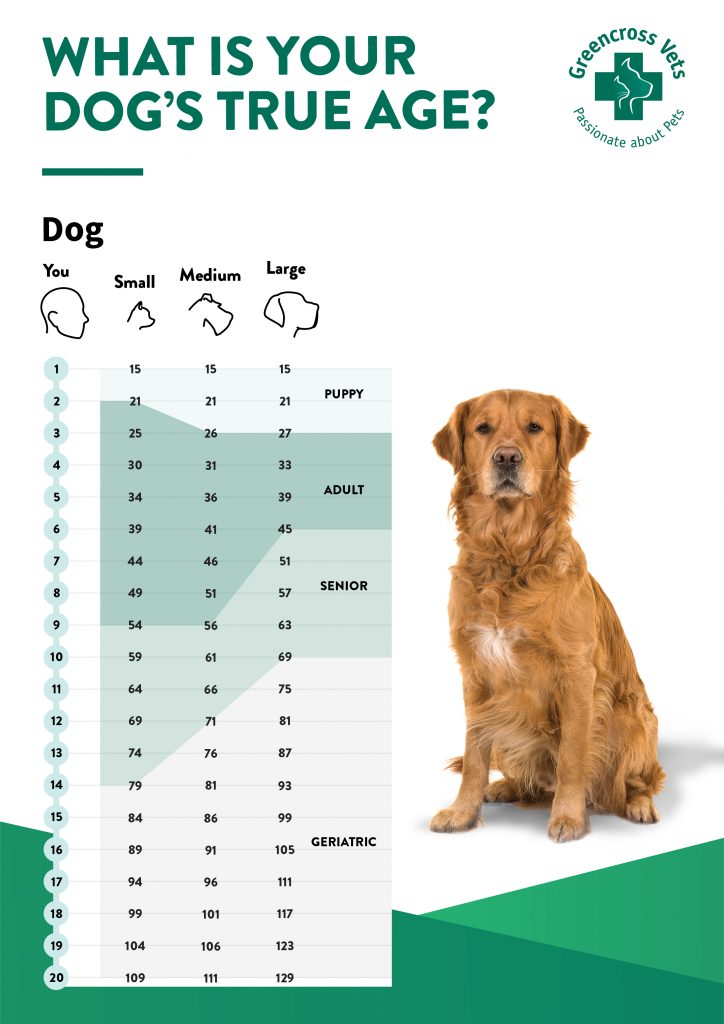
Because they age so rapidly, their risk of developing disease or illness increases. Senior pets require a different level of care than their younger counterparts. Senior dogs have different needs to adult dogs and puppies, which include:
– Dietary
A dog’s muscle mass and organ function decrease as they get older, so a higher carbohydrate, lower protein diet is best for your senior sidekick.
– More frequent check-ups
As animals age, their health status changes faster than their younger counterparts. Issues common in senior pets include arthritis, heart disease, cataracts, organ failure, hearing or vision loss, and tumours. More frequent health checks with your Greencross Vet will detect any issues early on, so your senior pet can live as long and happily as possible.
– Modified exercise regime
Regular moderate exercise helps to maintain muscle mass and keep your senior pet’s joints mobile. They may not be as quick at fetch, but taking them on a suitably-paced walk or jog will keep them happy, healthy, and fighting fit.
– Closer monitoring of skin and possible lumps
Keeping a keen eye on your senior pet for any lumps and bumps will ensure that possible cancers or tumours are treated as swiftly as possible. Cancer is more prevalent in ageing dogs, so ensure you monitor any changes in your pet.
– Improved dental care
As pets age, their bone density and dental health can deteriorate. Special dental diets, teeth brushing, and dental treats are all great ways to prevent dental disease. However, if you do notice any changes in your pet’s teeth, gums, or breath as they get older, bring it up with your Greencross Vet. Regular dental health checks by your vet will catch anything you may have missed.
Of course, vaccinations, parasite prevention, proper diet, and regular check-ups at your Greencross Vet are all still important in your senior pet’s healthcare.
Common Signs of Ageing in Dogs
The signs of ageing can be subtle in our pets. You may notice the physical signs such as:
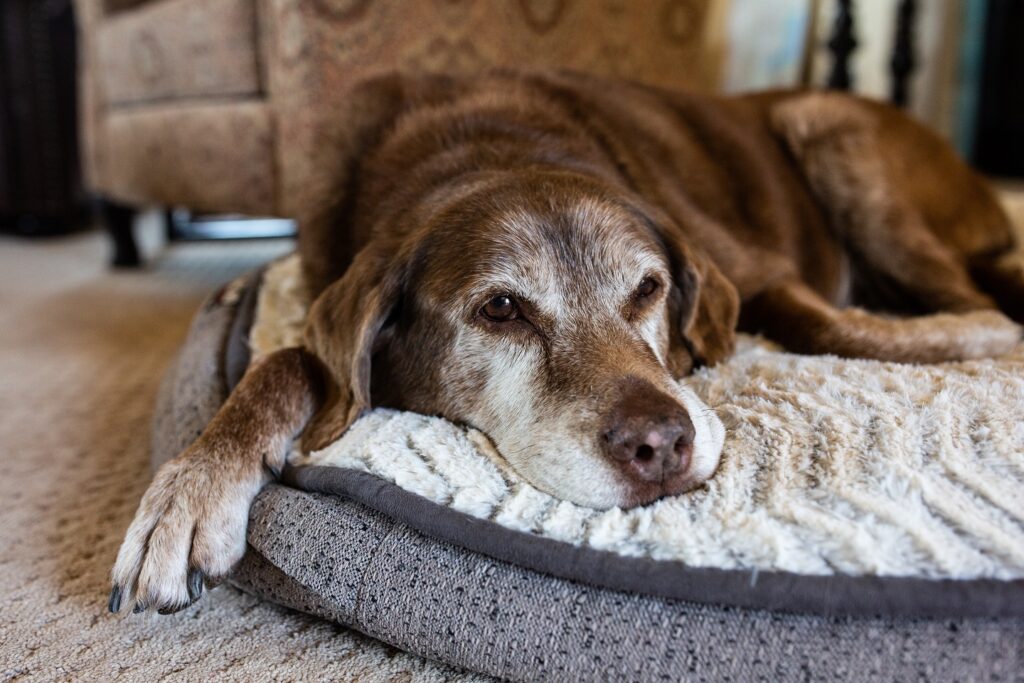
- Greying around the face.
- Less energy and sleeping more.
- Trouble toileting.
- Difficulty rising or walking.
- Reluctance to jump from heights.
- Appetite changes.
- Hesitation navigating stairs.
There are also internal signs that can go unnoticed without a veterinary examination. Visiting your vet twice a year will help slow down and even prevent the development of diseases.
Common Senior Dog Diseases & Issues
So what common diseases and health issues should you look out for in your senior dog?
Eye Diseases
Dogs can develop diseases of the eyes such as glaucoma, cataracts or dry eye.
- Glaucoma: Glaucoma is an increased eye pressure leading to blindness due to the death of the optic nerve. In the early stages very red, painful eyes develop but is treatable if detected very early on with a thorough vision assessment & eye examination by your veterinarian.
- Cataracts: Cataracts are due to lens changes in the eye & are common in ageing dogs or in those with diabetes. The most common sign is a blue/grey look to the centre of the eye which will lead to blindness. With early detection & regular vision assessments your veterinarian & yourself can monitor if & when surgery is required.
- Dry Eye: Dry eye is an autoimmune condition in certain breeds where decreased tear production reduces lubrication on the surface of the eye. This causes a thick sticky discharge to build up around the eye & surface of the eye to ‘scar’ affecting vision & possibly ulceration. Regular eye examinations will indicate if your pet is at risk of this disease.
Lung Conditions
Dogs can develop conditions such as bronchitis, emphysema, pneumonia & cardiac disease.
- Cardiac Disease: With an ageing heart the valves & chambers become less functional causing heart murmurs or a swollen heart. This means the heart works less efficiently causing breathlessness, cough, bloated belly or decreased exercise tolerance. Regular auscultation (listening with a stethoscope) will give your vet an early warning of cardiac disease.
- Bronchitis, Pneumonia, Emphysema: As the lungs age, the tissue that makes the lungs becomes less pliable (“stretchy”) meaning the lungs can’t expand correctly or the tubes (trachea or bronchi) lose their shape. This causes cough, breathlessness or lack of energy. Again regular auscultation or X-rays can give early warning or respiratory conditions.
Joint Issues
Senior dogs can develop conditions such as arthritis or previously undiagnosed conditions such as hip or elbow dysplasia could become apparent.
- Arthritis: Most large breed dogs over seven years will develop this with painful, swollen joints & an unwillingness to move or sit being the most common symptoms. Smaller breed dogs can also develop this condition. Regular examinations with your vet will indicate if or when treatment will be required for arthritis.
- Hip or Elbow dysplasia: These are conditions which develop when your dog is young but may not become apparent until the joint cartilage starts to “wear out”. Again painful swollen elbows or an unwillingness to sit or lay down are the most common symptoms for these conditions. Regular monitoring & examinations will give your vet early indication if these conditions are progressing.
Organ Disease
Senior dogs should have regular checks to ensure their liver, kidneys & adrenal glands are working effectively.
- Kidney Failure: Increased thirst and weight loss are the first symptoms of kidney failure along with smelly breath, mouth ulcers and nausea as the disease progresses. Regular urine & blood testing together with routine examinations will give an early indication to this disease. Early intervention greatly improves quality of life.
- Diabetes: Increased thirst & weight loss again are early indicators along with recurrent urinary tract infections & increased appetite. Regular urine & blood testing with routine examinations will give an early indication to this disease. Early intervention greatly increases prognostic indicators with higher rates of remission.
- Liver Disease: The liver stops processing certain waste products which cause nausea, lack of appetite & possibly seizures. Regular routine blood testing can give an early indication of decreased liver function.
- Adrenal Disease: The adrenal gland produces certain substances which help regulate metabolic processes. If it produces too much or too little the liver, heart, skin, hair coat & muscles can be affected leading to immature ageing processes, diabetes & liver failure. Routine blood testing can give indications as to the function of the adrenal gland.
Lumps and bumps
As the years go by, your pet may develop lumps, which should be checked by your veterinarian. Many are harmless and to be expected with advancing age. Causes for concern include the lump growing or changing in shape rapidly, your pet chewing or scratching at a lump, or if the lump is in a compromising position like the eye, anus, or armpits. In most cases, only microscopic examination can reveal the type and nature of your pet’s lumps.
Bad breath
Bad odour from your pet’s mouth will usually indicate poor dental health. You can help prevent this with regular tooth brushing, but regular dental checks are the best way to detect problems early and maintain mouth health.
Incontinence
Urinary incontinence is a prevalent issue among senior dogs, particularly in desexed females. It involves the involuntary leakage of urine and can result from various factors, including hormonal imbalances, urinary tract infections, spinal or neurological disorders, and age-related weakening of the bladder muscles. Symptoms may include damp bedding, frequent urination, or accidents in the house. Treatment options vary so if you notice signs of incontinence in your senior dog, consult your Greencross Vet for a comprehensive evaluation and tailored treatment plan.
Choosing the Best Food for Your Senior Dog
Just as we give special attention to the nutritional needs of puppies and kittens, dogs and cats heading into their golden years require premium-quality senior pet food to maintain their quality of life. Once our pets celebrate their seventh or eighth birthday, it is recommended that they transition to premium senior pet food. These special foods meet their changing nutritional requirements, giving them longevity and wellness into their senior years.
As our dogs age, their energy levels reduce, so it is important that they eat a well-balanced diet that is lower in calories but still has adequate protein and fat to maintain a healthy body weight and reduce the chance of becoming overweight.
Good quality senior pet food has many benefits that support your senior pet as they age. Premium quality pet foods will help to:
- Maintain ideal body condition.
- Boost antioxidants.
- Maintain healthy skin and coat.
- Support digestive health.
- Provide support for ageing joints.
- Support urinary tract health.
- Support healthy teeth and fresh breath.
Appropriate food for your senior pet should be chosen with the help of your veterinarian. A wide range of special diets are available, like Hills Science and Royal Canin diets. Unless advised otherwise by your veterinarian, gradually introduce any new diet over a 5 to 10-day period. Mix the new diet with your pet’s current food, gradually increasing its proportion until the changeover has been completed.

Creating a Comfortable Home Environment
Senior dogs benefit from extra love and attention. Here are some ways to make life a little easier and more comfortable for them as they age:
- place extra water bowls around so your pet doesn’t have to move far for a drink
- provide soft, elevated bedding
- feed them high-quality nutrition that meets the requirements of a senior’s diet
- engage in frequent, low impact exercise
- bring them inside to sleep away from the elements
- manage their temperature by providing a jacket in winter and keeping them cool in summer
Exercise for Older Dogs
What exercise is safe for my senior dog?
As with humans, as your pet ages, they will become slower and stiffer. Dr Helen Harvey, a veterinary surgeon at Greencross Vets Wishart Road, says, “We recommend a small amount of frequent low-impact exercise. Walking is great for your senior pet and will help keep them mobile and free of pain. Generally, walking on a leash is best as it limits dogs from running around like crazy before realising they have aches and pains from doing so.”
How often and how much should I exercise my dog?
A short walk every day is ideal; however, “Your pup will benefit from three 20-minute walks a week. This is better than one long walk as it will prevent your pet from tiring out and over-using sore joints”, says Dr Harvey.
What are some signs I’m under or over-exercising my dog?
Dr Harvey says, “The most obvious sign your pet isn’t moving enough is weight gain.” Consider an extra walk or playtime to help shift weight. Also consider talking to your local Greencross Vets clinic to review the type of food and amount of calories you’re feeding them.
“If you’re worried you’re over-exercising your elderly dog, watch for tell-tale signs like sitting down mid-walk and refusing to go any further, becoming lame, limping or acting in pain or distress.”
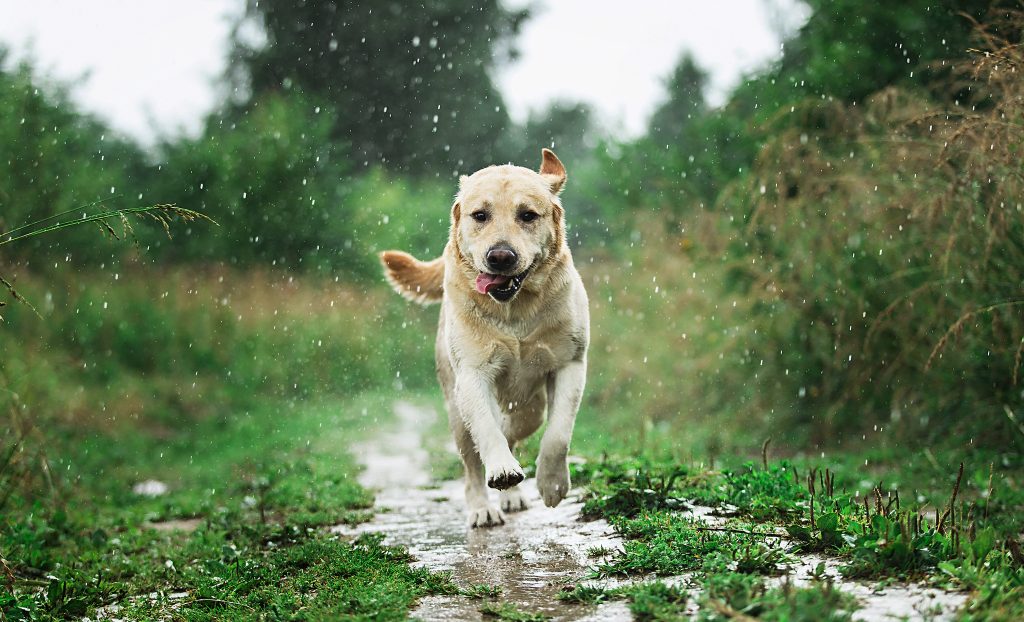
The Importance of Regular Veterinary Check-Ups
We believe proactive care not only improves the quality of your pet’s life; it adds years to it. Ask your local Greencross Vets team about our exclusive Healthy Pets Plus programme, which is a simple and cost-effective way for you to ensure the proper care of your pet while minimising your yearly veterinary costs.
During a senior health check, you can expect a thorough examination of your pet to include their joints, eyes, ears, teeth, skin, coat, heart, lungs, and abdomen and an assessment of their dietary requirements, body weight and condition, amongst others.
A sample of your pet’s urine and blood is taken for diagnostic testing to help determine any underlying or early signs of health issues that are not visible to the naked eye. Diagnostic testing can identify changes in your pet’s body that may require close monitoring or early treatment.
Currently, we’re offering a free urine test (valued at $147) when you book a wellness blood test for your dog aged 7 years or older. This limited-time promotion is available from 1 April to 31 May 2025 and is designed to help detect early signs of disease, ensuring your pet stays healthy and happy.
New members can also enjoy one month free when signing up for our Healthy Pets Plus senior plan. This membership includes annual wellness screenings, unlimited vet consultations, and 24/7 access to WebVet, providing comprehensive care tailored to your senior dog’s needs.
To take advantage of these offers and learn more about how we can support your senior dog’s health, visit our Senior Pet Promotions page.
Senior pets may need a little bit of extra care, but we think their years of unconditional love make them so worth it!

 Greencross Vets
Greencross Vets 

